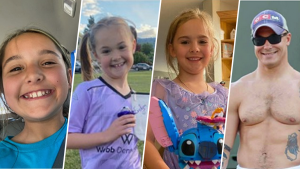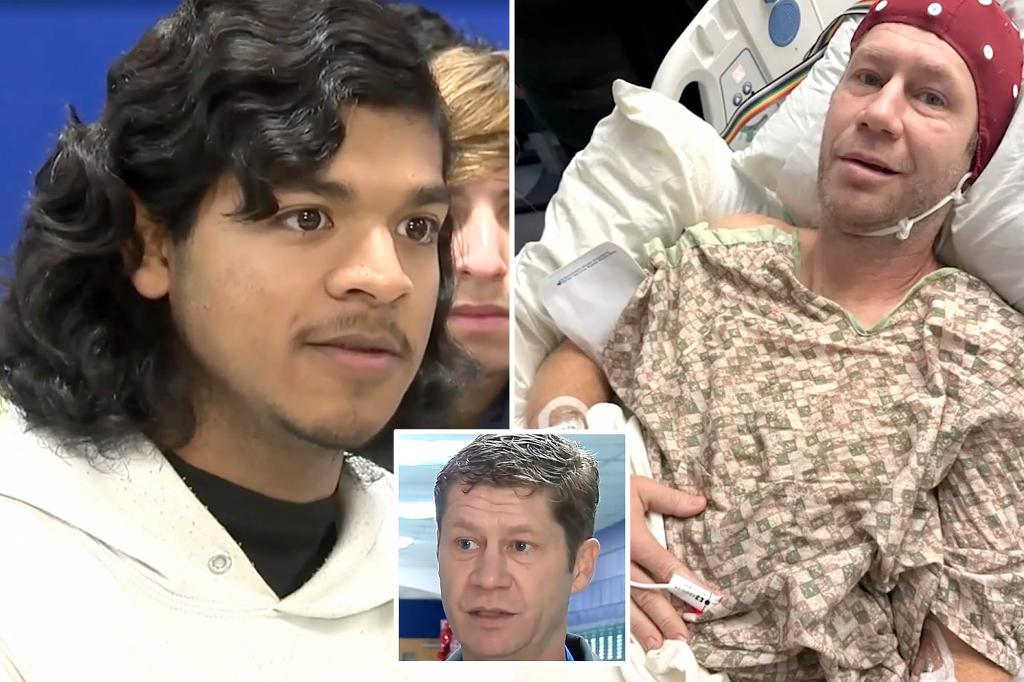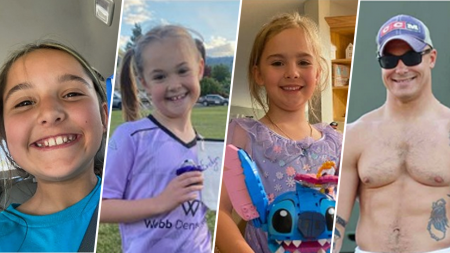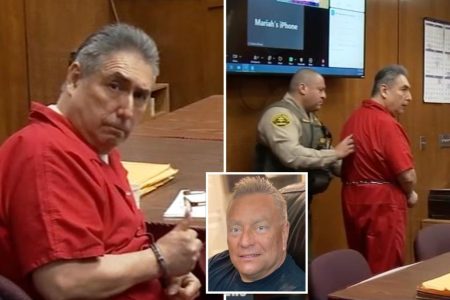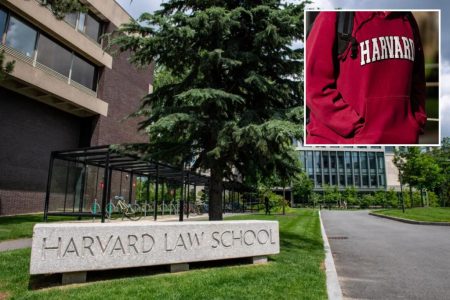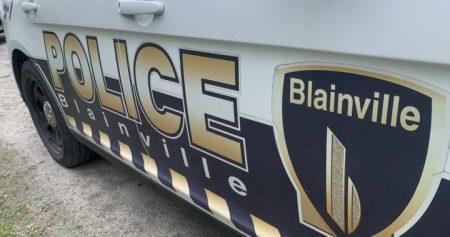On November 7, 2024, a seemingly ordinary after-school skate club meeting at MacArthur High School in San Antonio, Texas, transformed into a dramatic scene of life-saving heroism. Adam Compton, a 46-year-old social studies teacher and club chaperone, suddenly collapsed, suffering a cardiac arrest. This unexpected medical emergency unfolded in front of his students, prompting a swift and courageous response that ultimately saved his life. Compton, recalling the event, remembered feeling unusually fatigued and deciding to take a break. However, his students’ recollection paints a different picture – they described him struggling with a skateboarding trick before starting to hyperventilate and losing consciousness.
The teenagers reacted immediately. Several students sprinted to alert the school’s athletic trainer, Amanda Boyd, while two students – junior Aidan Anthony-Gonzalez and senior Steven Amaro – who had both received CPR training, began searching for a defibrillator. Their quick thinking and decisive actions proved crucial in the critical moments that followed. Boyd quickly assessed Compton and, finding no pulse, started performing CPR. Meanwhile, Amaro’s recent training on using an automated external defibrillator (AED) became unexpectedly vital. Just weeks prior, he had completed the course, a skill he never imagined he’d need to use so soon.
Anthony-Gonzalez, focused on keeping Compton conscious, continuously encouraged him to stay responsive. “Focus on my voice, Mr. Compton. Keep your eyes open. Come on, breathe,” he urged, providing vital verbal stimulation amidst the chaotic scene. With the AED located, Boyd and Amaro swiftly applied the pads to Compton’s chest and administered a life-saving shock. This crucial intervention, according to Boyd, re-established Compton’s heartbeat. Amaro recounted the experience as surreal, acknowledging the unexpected nature of the event and expressing relief that he was able to assist. He handed over care to the paramedics upon their arrival, reflecting on the rarity and significance of the situation.
Compton was rushed to a local hospital, where doctors diagnosed him with a genetic heart disorder, a condition previously masked as a seemingly benign heart murmur. He expressed profound gratitude for the quick thinking and decisive actions of his students and the athletic trainer, recognizing that their presence and training were instrumental in his survival. The incident highlighted the importance of having trained personnel and readily available life-saving equipment in schools.
Following his hospital stay, which included the implantation of a pacemaker, Compton made a remarkable recovery and returned to his teaching duties just a week later. His return was met with relief and joy by the school community, who celebrated the positive outcome of the terrifying ordeal. Compton’s story serves as a powerful testament to the importance of CPR and AED training, and the profound impact it can have on saving lives.
This incident also underscores the significance of Texas state legislation, which mandates the presence of AEDs in schools. Texas is one of 26 states with such a requirement, highlighting the growing recognition of the vital role AEDs play in responding to sudden cardiac arrest. According to AED.com, Texas law requires each school district to have at least one AED on every campus and a trained employee readily available during student gatherings. Furthermore, all students in grades 7-12 are required to receive CPR training, equipping them with potentially life-saving skills. These regulations reflect a proactive approach to ensuring student safety and preparedness for medical emergencies. Compton’s experience serves as a powerful example of how these measures can, and do, save lives. The students’ quick response, the availability of an AED, and the presence of trained personnel all contributed to the successful outcome. This incident exemplifies the importance of continued emphasis on CPR and AED training in schools, ensuring that more individuals are equipped to respond effectively in such critical situations.
